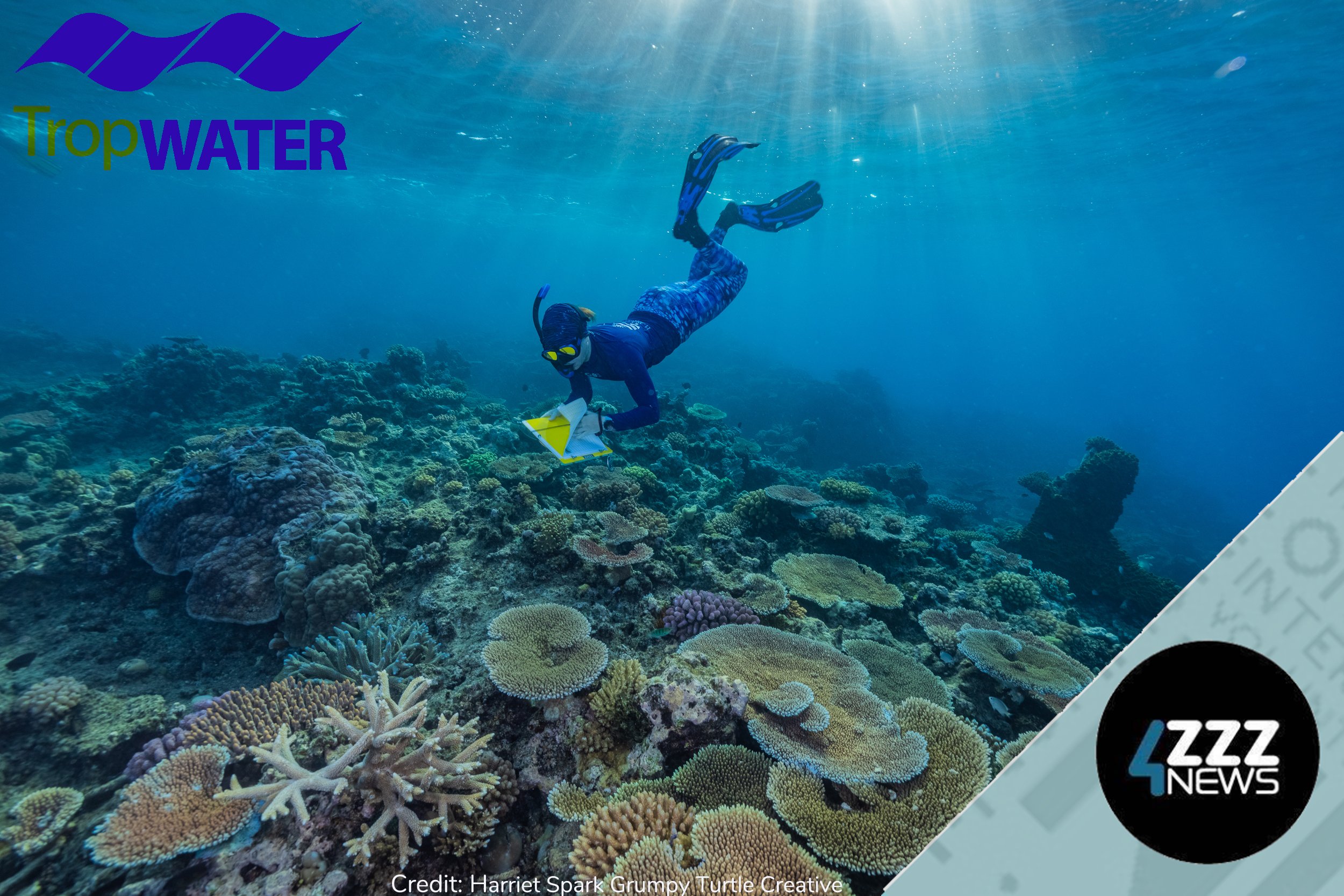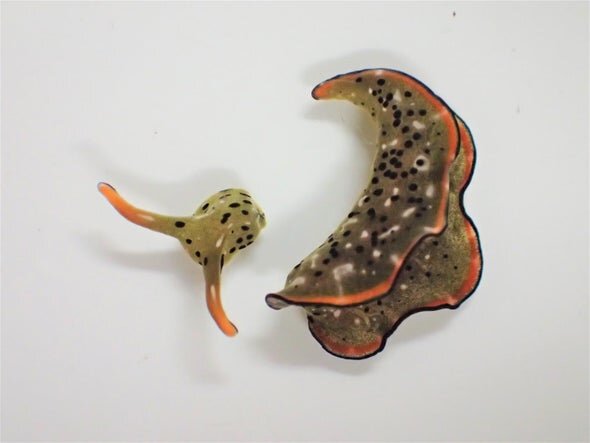Wild Science August 2022: Can stingrays really talk?
Scientists from Sweden have confirmed stingrays can make a "clicking" sound, not unlike the sound a human makes with a click of the fingers.
In a separate study from Japan scientists have discovered what's in the blood cells of hibernating bears that allows them to sleep for seven months without losing muscle mass.
ABC presenter Phil Staley and Dr Abbi Scott from Tropwater at James Cook University picked these two stories out for their typically spritely and humorous look at the world of science.
Listen now to laugh while you learn a little more about the natural world we live in.
July 2022: ZZZ Radio interview
We often hear the Great Barrier Reef is in trouble - coral bleaching and warming waters to mention a few threats, however do you know of the reefʻs other ecosystems like sea grass? How do these other ecosystems fare, what projects are happening on the reef and do efforts overlap?
4ZZZ's Eliot Rifkin chatted about our reef with Dr Abbi Scott a Research Officer from TropWater at James Cook University.
October 2021: Wild Science goes deadly
Wild Science are joined by special guest, the inspiring NSW 2020 Young Australian of the Year recipient, Corey Tutt. Corey launched the Deadly Science program as a way to get more science resources and education models into remote indigenous communities across Australia. A Kamilaroi man, he's just released his latest book: The First Scientists. Corey explains his journey and aspirations to Phil Staley and Dr Abbi Scott.
And this month Dr Scott explains how anyone can contribute to one of the world's biggest citizen science projects and help save the Great Barrier Reef.
September 2021: Wild Science - Kul-Bul: Spirit of Sea Country
The future of the Great Barrier Reef is in safe hands with the launch of a pilot program designed to combine scientific research with knowledge from Aboriginal and Torres Strait Islanders.
The Kul-Bul pilot reef restoration project has been driven largely by Yirrganydji Land and Sea ranger Gavin Singleton along with researchers from GBR Biology, Dawul Wuru Aboriginal Corporation, Reef Restoration Foundation, TropWATER, Mars Sustainable Solutions and Citizens of the Great Barrier Reef.
Regular Wild Science hosts Phil Staley and Dr Abbi Scott discuss the project at length this month with Eric Fisher from GBR Biology and Ryan Donnelly, the CEO of Reef Restoration Foundation.
The program, currently scheduled to end in February 2022 is focussed on the Saxon, Norman and Hastings Reefs off the Far North Queensland coast.
September 2021: Wild Science - How to conduct research in croc infested waters
A new episode of Wild Science featuring amazing research on sword fish and growing sea grass in a croc infested river.
Hosts Phil Staley and Dr Abbi Scott from Tropwater at James Cook University talk through a myriad of challenges facing all marine researchers in Queensland.
Special guests this month are Dr Barbara Wueringer, Director and Principle Scientist for Sharks and Rays Australia and Assoc. Prof Michael Rasheed from Tropwater.
Enjoy learning about biology from some of Australia's brightest scientists.
July 2021: Wild Science - Shark Week!
It's Shark Week so Phil Staley and Dr Abbi Scott deliver a marvelous episode focusing solely on sharks. You'll hear Professor Colin Simpfendorfer, a Professor of Marine Biology in the College of Science and Engineering talk about shark finning and precisely where Australia fits in the worldwide act of the illegal practice. He also details some essential "Shark 101" too, including which sharks you're likely to see and how humans accidently attract them.
And for a fun look at sharks, Dr Scott and Phil welcome Associate Professor Lauren Rosewarne to the show to assess the damage caused by Phil's favourite movie, Steven Spielberg's 1975 blockbuster, Jaws. Has that film (and subsequent spin offs) ruined the average shark's reputation? Have a listen and you decide.
June 2021: Wild Science
Welcome to the latest Wild Science show with Phil Staley and Dr Abbi Scott.
This month the team interview Australian Institute of Marine Science geneticist Professor Madeleine van Oppen about growing corals able to withstand warmer water.
And Dr Vanessa Pirotta drops in with an update on the annual whale migration up the east coast of Australia: the numbers are enormous and it's just a matter of time before you spot a whale!
May 2021: Wild Science
The ABC radio production Wild Science is an entertaining and witty way to learn about the latest research into Australian wildlife.
This week hosts Abbi Scott and Phil Staley interview possibly the bubbliest scientist around, Blanch d'Anastasi about the rediscovery of a long lost sea snake.
You'll also hear how to stay safe from sea snakes whilst scuba diving, how scientists are monitoring turtles from space and the reason Tasmanian Devils have that name despite their cute and cuddly appearance.
Recorded live on ABC Far North radio.
April 2021
In this month's episode of incredible biology stories you'll hear about sea slugs that can decapitate themselves and regrow an entire new body!
Join Abbi Scott and Phil Staley as they also learn how the invasive pest known as yellow crazy ants could be stopped by using it's own laziness against it! Oh yes, it's true.
And this April is Citizen Science Month - why not use it as a springboard for you to help with genuine scientific progress. This month the team speak with Mozzie Monitors founder Craig Williams and yes, you can help study mozzies too!
March 2021 : Science AbLib
The latest episode of Science ABLIB reveals how much poo a sea cucumber does in one year (and why on Earth that's of use to scientists)!
With the huge public uptake of drones, researchers trying to improve the Great Barrier Reef want all drone pilots to get involved with a citizen science project that could really make a difference. That means you!
And if you love learning about things that could kill you (and who doesn't), your hero this week is Dr Ann Jones, host of the ABC's Catalyst television program (now available on iView). Dr Jones explored the venom of spiders, snakes and jellyfish and how that same venom can be used to help save human lives. Dr Jones shares the truth about what it's like to be in an operating theatre watch a heart transplant - and how spider venom can actually help in there!
February 2021 - Science AbLib Season 2 Episode 1
Australia's iconic platypus is in trouble, Monitor lizards are the world's most accommodating homeowners and seagrass has found a way to filter micro plastics!
Phil Staley, Abbi Scott and Libby Rowley are back with another season of Science ABLIB - a fun way to learn about biology research from around the world.
This month's special guest is Monitor lizard wiz, Dr Simon Curlow, a Senior Research Fellow in the Institute for Applied Ecology at the University of Canberra.
He explains how the massive iconic lizard makes room for up to 750 other animals while burrowing it's own nest!
Science AbLib October 2020
We have another entertaining episode of Science ABLIB.
Today Abbi Scott, Libby Rowley and Phil Staley explore the likelihood of yet another busy stinger season this Australian summer.
And Andy Ridley, chief executive of what could be the largest and most important citizen science project ever, the Great Reef Census, explains how everyone on the planet can help in researching the health of the Great Barrier Reef.











